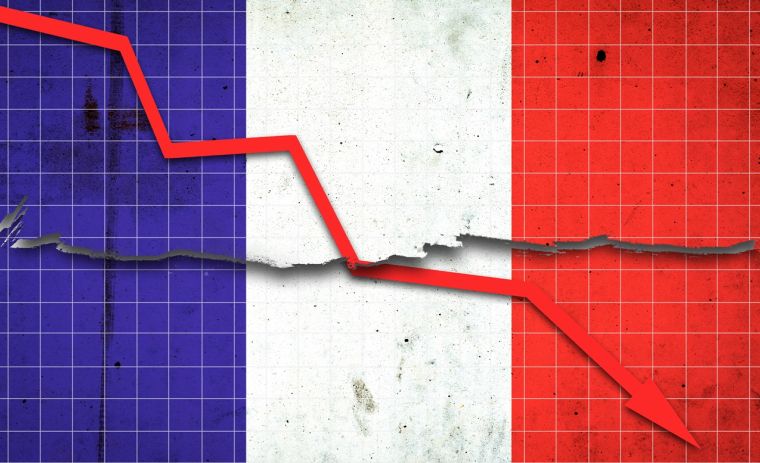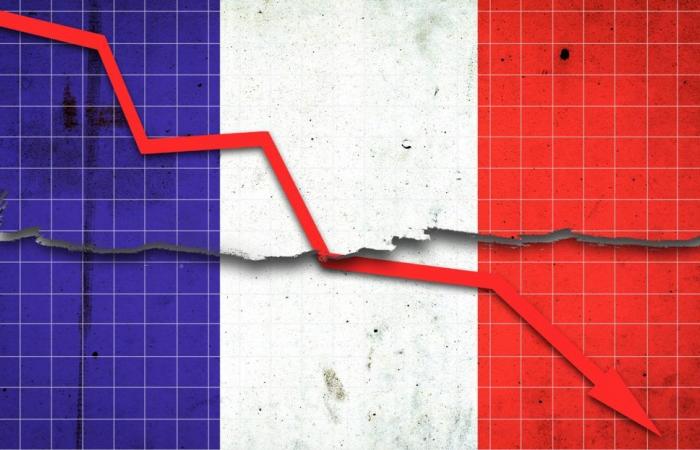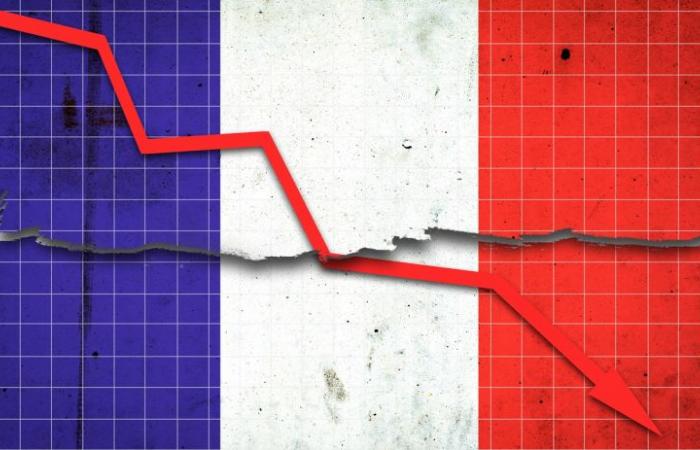
The Fitch rating agency ultimately maintained France’s AA- rating but downgraded its outlook from stable to negative, which means that the finance bill and the government’s promises have not completely convinced the raters. (Credits: Adobe Stock)
By maintaining its rating of French sovereign debt but placing it under a negative outlook, Fitch is sending a signal to Paris. Philippe Trainar explains why this episode does not remove doubts about the next ratings to come until the end of November.
The Fitch rating agency ultimately maintained France’s AA- rating but downgraded its outlook from stable to negative, which means that the finance bill and the government’s promises have not completely convinced the raters, that the rating agency does not rule out a further deterioration of our country’s public finances and that France is therefore under surveillance.
The reasons for this skepticism are not surprising. They only reflect the sentiment of the majority of (reasonable) French people, financial markets and analysts. First of all, France is unfortunately not known for its control of public finances which have tended to deteriorate slowly but surely for half a century without the country being seriously concerned. Then, this deterioration of our public finances is attributable to the continued progression of public and social spending, the weight of which has never stopped growing as a percentage of GDP. France is clearly one of the large industrialized countries where the clientelist use of public spending has become most prevalent. Finally, the current government seems very fragile, without a political majority, lasting only thanks to the tolerance, not necessarily benevolent, and in any case carefully calculated, of the extreme right, in a country which cultivates the culture of conflict ( of class, gender, racial struggle, etc.) and who knows almost nothing about the culture of compromise. A government on borrowed time? Not necessarily… thanks to Michel Barnier’s exceptional negotiation skills, which are probably underestimated by analysts, particularly foreign analysts.
Fitch’s decision does not, however, completely remove the uncertainties over France’s rating, Moody’s having to make its decision on October 25 (currently this agency rates France Aa2… roughly the equivalent of AA-) and Standard & Poors on November 29 (currently this agency rates France AA-). The fear therefore remains of a downgrade of the rating by one of these two rating agencies, which also constitute references more followed by the international markets than Fitch. Some therefore estimate that the risk of a widening of France’s spread compared to Germany, which currently stands at 75-80 basis points (0.75-0.80%) while it was at around 50 basis points (0.50%) at the end of last year, still cannot be ruled out.
Is this fear justified? Certainly, Moody’s and Standard & Poors will work from the same data as that available to Fitch. However, we cannot exclude that they give more importance to France’s traditional inertia in terms of controlling public finances and to the fragility of Michel Barnier’s government, in forming their opinion. There is hardly any certain science on the subject. In addition, they will benefit from additional political information thanks to the first parliamentary debates. On the other hand, it is not certain that a downward revision of France’s rating by these agencies will automatically lead to an increase in France’s spread vis-à-vis Germany, especially a significant increase. The markets barely reacted to Fitch’s announcement.
Empirical studies, notably those of the IMF, show that the relationship between a country’s rating and its financial situation is non-linear. The lower this rating is or the greater its deterioration compared to market expectations, the greater the risk of a significant increase in the spreads of the country concerned itself. This non-linearity is explained first of all by the fact that we are approaching the “investment grade” border, below which most companies and funds exclude the possibility of investing in debt. concerned. It is also explained by the fact that, in general, rating agencies do not provide new information to the market to the extent that they react not to insider information but to information already known to the market and which are therefore already incorporated into the prices.
Apart from these two cases, the decision of a rating agency can therefore only induce a reaction from the market if it takes the latter by surprise, either due to new information (political or economic), or an analysis of the original situation. If all these criteria were more or less met during the Greek crisis, the same is not true for France today and there is no reason to think, at this stage, that by the end November rating agencies can provide completely new information or analyses. Even in the event of an unforeseen weakening of Michel Barnier’s government, the market will in all likelihood react before the rating agencies.
Philippe Trainor
Member of the Circle of Economists,
Honorary professor at the CNAM insurance chair








